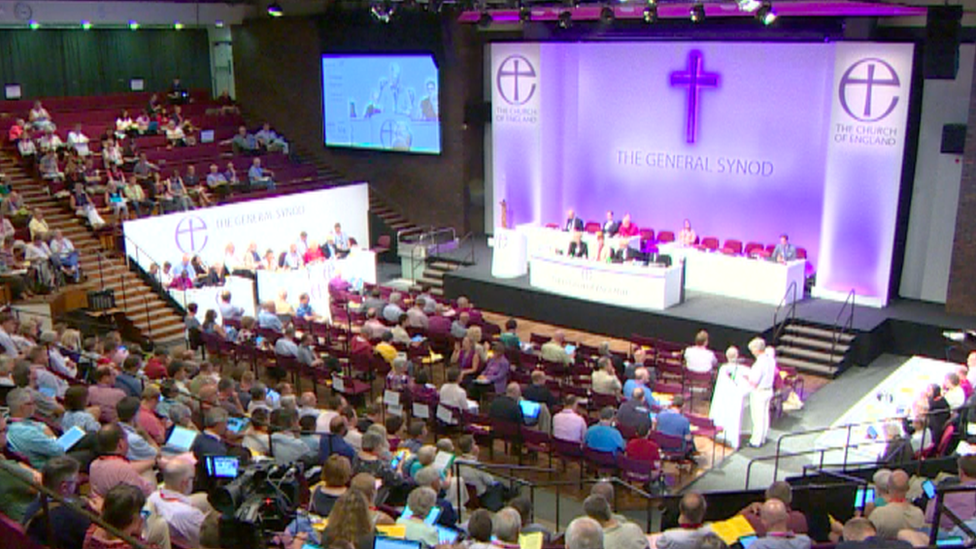Church of England votes to explore transgender services
- Published

The general synod meeting lasts four days
The Church of England's governing body has voted to look into special services for transgender people.
Supporters of the services said the Church should offer a welcome to people to mark their transition.
Others have suggested the services would be counter to parts of the Bible that state that humans are created as either male or female.
The Church's four-day general synod meeting in York started on Friday.
The motion recognised the need for transgender people to be "welcomed and affirmed" in their parish church.
'Euphoric'
Chris Newlands, the vicar of Lancaster Priory church, posed the motion as a way of the Church welcoming people who suffer from transphobia in society.
Mr Newlands said he would speak on behalf of the transgender community, as there were no transgender people in the synod.
He said: "I hope that we can make a powerful statement that we believe trans people are cherished and loved by God, who created them."
After the Synod voted for the motion, he added: "I'm euphoric and exhausted.
"I did think there were some comments which reflect some of the extreme views which we would wish to counter.
"I'm getting so many messages from trans friends around the world. Synod has changed - we have turned a corner."
During the debate, lay member Tim Hind, who was supportive of transgender people, argued that the motion would make the Church look "foolish".
An amendment to the motion asking bishops to consider the theological, pastoral and other issues around gender transition, was rejected.
'Not a sin'
A transgender liturgical service would not be a second baptism, however, as the Church's teaching is that humans are made in the image of God - transcending gender - and baptism takes place only once.
The Archbishop of York, the Most Reverend John Sentamu, said that "theology has to be done" by the House of Bishops, but "it can be done very quickly".
During an earlier debate, the Bishop of Liverpool, the Right Reverend Paul Bayes, said: "As the world listens to us today, the world needs to hear us say that LGBTI orientation and identity is not a crime, not a sickness and not a sin."
Meanwhile, the Archbishop of Canterbury, the Most Reverend Justin Welby, said the Church would spend three years on a document outlining a new stance on sexuality.
Current rules ban the marriage of same-sex couples in the Church.
Services of blessing for civil partnerships are also prohibited, but informal prayers are allowed.
- Published8 July 2017
